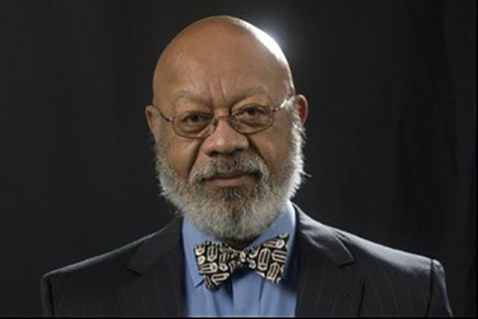By Dr. Harold A. Black
blackh@knoxfocus.com
haroldblackphd.com
One of my closest friends was bemoaning the fact that the republican leadership has trouble keeping their caucus together. On the $1.2 trillion infrastructure bill, 19 republican senators voted for the bill including majority leader Mitch McConnell. On the House side, 13 republicans voted for the bill. This was despite evidence that the bill was about infrastructure in name only with “only” $115 billion for roads, highways and bridges and $42 b for airways, waterways and ports. Of course, if every republican had voted against the bill, it would have passed with the democrats holding a majority in the House and the vice president would have cast the tie-breaking vote in the Senate. While the republicans seem to be trying to herd cats, the democrats seem more united – until the inaptly entitled “Build Back Better” bill came along. First, off what is being built back better? Is this bill intending to return the country to the record low unemployment rates experienced by all segments of the population during the last administration? Totally unlikely. The Tax Foundation estimates that the final version of the bill will reduce economic growth by 0.5 percent, eliminate 125,000 jobs and reduce after tax income for every income quintile. The question is why would anyone vote for it? The answer lies in the goodies for friendly constituencies buried in the bill. Recall that the bill started out at a cost of $4 trillion and was immediately opposed by all the republican senators and two democrats, Joe Manchin of West Virginia and Kristen Sinema of Arizona who were harassed and cajoled to change their votes. Neither has with Manchin being the most discussed holdout. He insisted that he would not vote for funding over $1.50 trillion (!) although he modified that to $1.75 trillion. The democratic leadership appeared to acquiesce but upon further review, the wishes of Manchin were not met, either fundamental disagreements or in the amount which was scored by the Congressional Budget Office at $4 trillion. It looks as if Manchin will not cave and the bill in its present form is dead.
Prior to the democrats gnashing teeth over Manchin and Sinema, we had the theatre of House “moderates” and “progressives” squabbling over the timing of the votes for the reconciliation bill and the infrastructure bill. What is noteworthy is that the “moderate” group consisted of only seven members while the “progressive” group counted 95 members. I find it is hard to comprehend that nearly half of the democrats in the US House are socialists. But so it is. Once a major caucus within the democrat representatives was the Blue Dog Democrats made up of more conservative members (included were Heath Shuler and Harold Ford, Jr.). Now that caucus has a mere 19 members with Shuler’s district now represented by a republican and Ford’s by the most left-wing politician in the Tennessee delegation.
Bernie Sanders is the only senator in the progressive caucus. Yet it is hard to find a moderate democrat senator apart from Manchin and Sinema. Yes, there are nine other democrat senators who are sometimes labeled as moderates. Yet these nine vote with Bernie Sanders and the liberals on virtually every bill. Consider that only rarely do any stray from the party line.
So, are there really any moderate democrats in the senate? Govtrack.us publishes a ranking of the House and Senate by ideology with one hundred being the most conservative. For 2020, Tennessee’s Marsha Blackburn is #100. Sinema is the most conservative democrat at #68 while Manchin is #57. No republican is ranked below Manchin. That means that if Manchin became a republican, he would be more moderate than either Collins, Murkowski or Romney. One of the democrat senators touted as moderate, Amy Klobuchar of Minnesota is ranked #19. Elizabeth Warren is #21! That there are 20 senators more liberal than Warren is sobering. Nor surprisingly Sanders is #1. Importantly, prior to the election, Sanders was #2. Who was #1? Kamala Harris.






